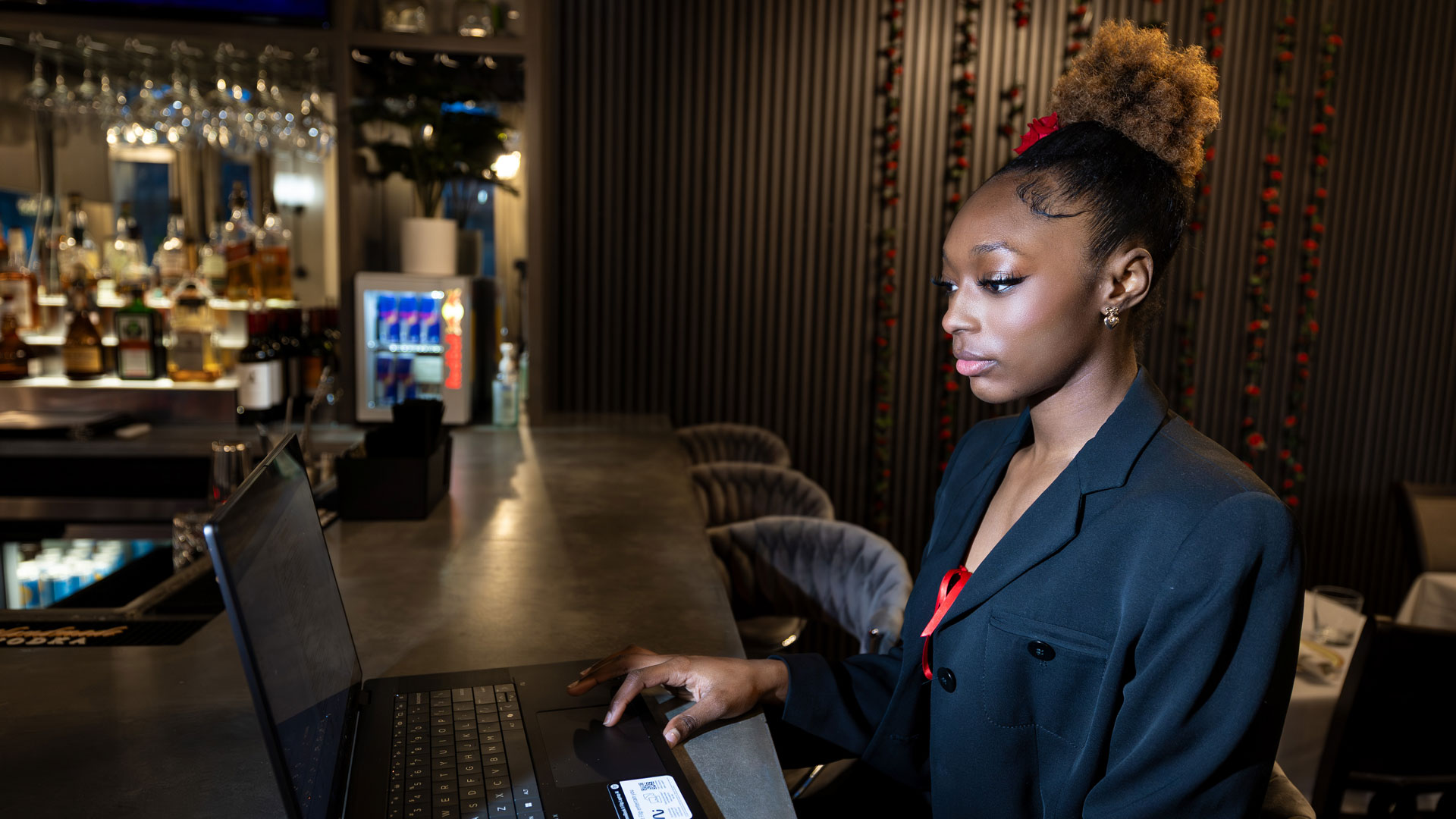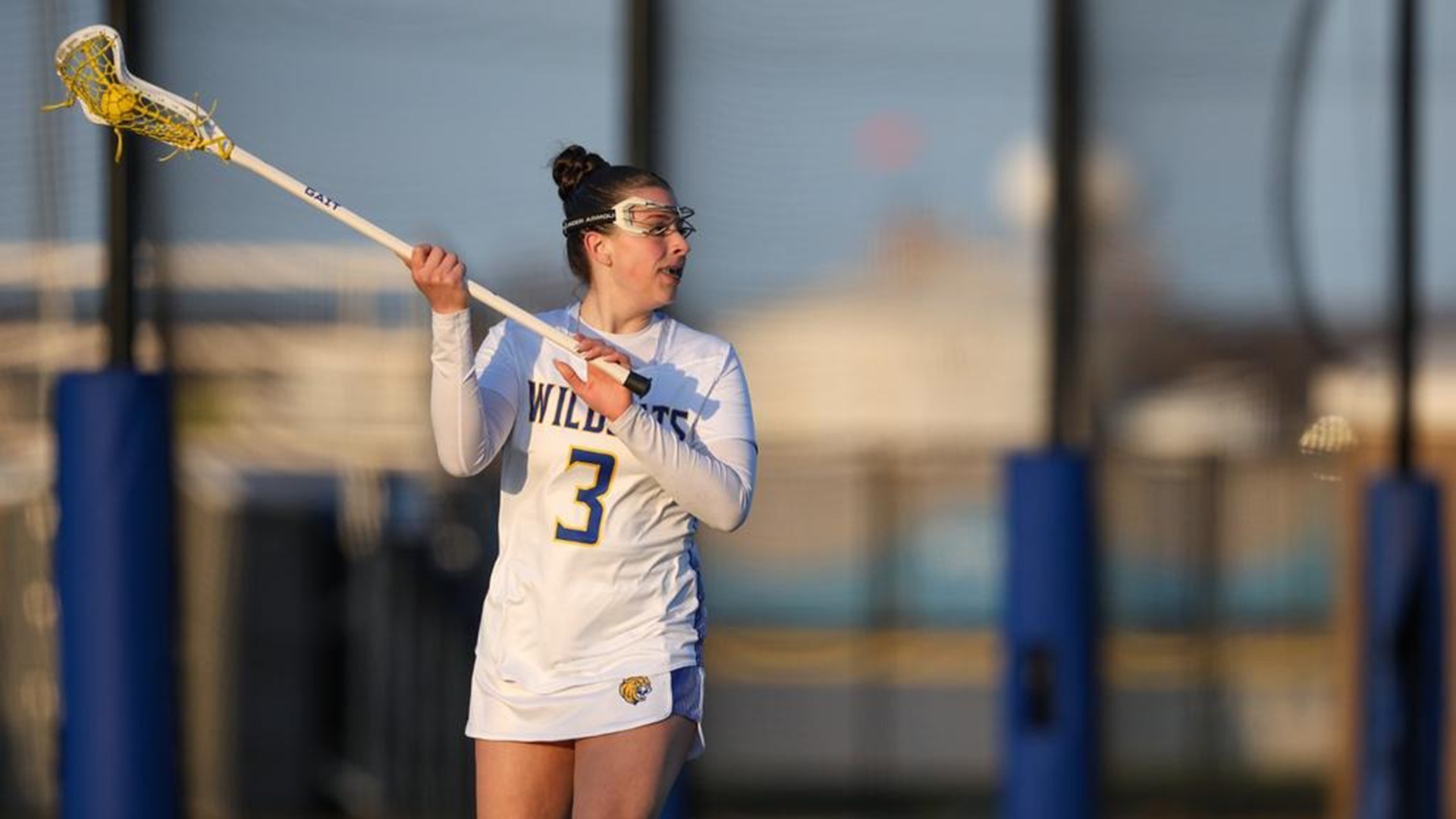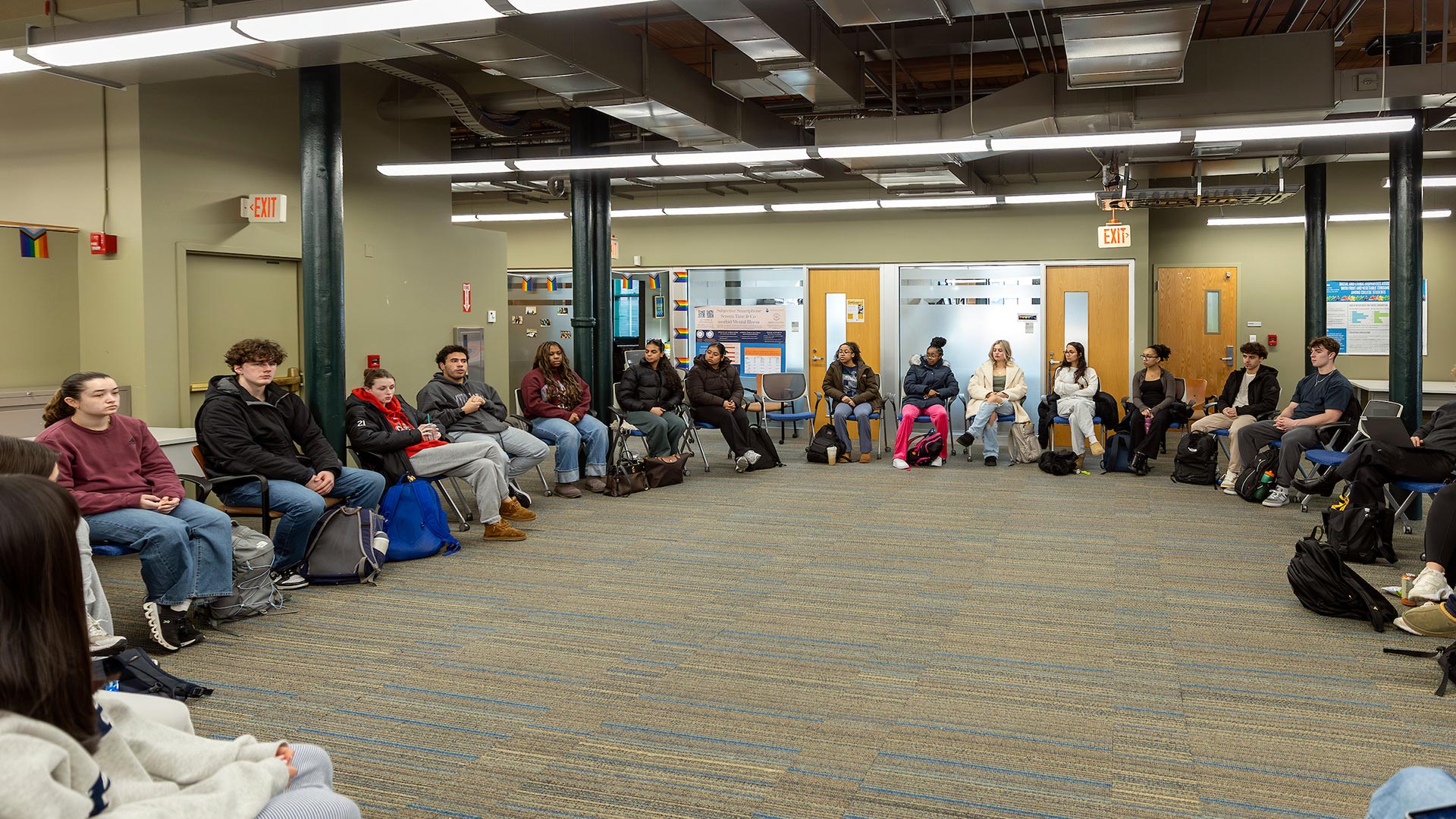5 Tips for First-Generation Students
More than a third of Johnson & Wales University students report being first-generation, or the first in their family to pursue a bachelor’s degree. This brings unique challenges, as their parents may lack the experience to help students navigate applying to college, completing at FAFSA or understanding campus culture.
Hospitality Management major Ashling O’Riordan ’25, Health Science major Samantha “Sam” Bruno ’27 and Associate Professor of Educational Leadership Suzanne Buglione participated in a JWU Providence panel in November to coincide with First-Generation College Celebration Day. Panelists and attendees all agreed that being a first-gen student is like speaking two different languages and living in two different worlds; your parents and family want to support you but don’t understand what it’s like to be a college student, while your classmates may have similar college experiences but lack the pressure you feel to succeed as the first in your family to graduate.
The trio are just a few of the countless first-gen students who’ve found help outside of their families. Zhya Williams ’25, a Culinary Arts & Industry Management major at JWU Charlotte, is on track to complete her degree in December, after which she hopes to become a private caterer in her home state of Texas. “My mom is originally from Trinidad, so she didn’t go to college,” Williams explains. “She came here at 19, and her household didn’t see people going to college.”
But Williams’ high school had a college and career center to help students plan their futures, while she also participated in Upward Bound for most of her school experience. “I was able to see people going to college and see people on campuses,” she says. “Even though my older sister didn’t go, I remember telling my mom as a kid that I was going to college.” Between her high school staff helping her apply to colleges and Upward Bound walking her through the FAFSA, she achieved her childhood dream.
Here is her and other first-gen students’ advice to those just beginning their journeys — as well as resources JWU offers to help first-gen students succeed.
1. Take Advantage of Help from Others
With a mother from Ireland who didn’t know how U.S. financial aid worked and a father who hadn’t finished school, Ashling O’Riordan would have struggled to find answers to her questions. “JWU’s Student Financial Services department gave me a lot of info on what I was doing and how things worked, which made it all a lot easier,” she stated on the first-gen panel. “Once they helped me, that made it easier for my mom and me to help my brother go through the process.”
“Get comfortable asking questions and seeking help,” advises Jayla Pugh, a Sports, Entertainment, Event – Management (SEEM) major at JWU Charlotte, who is getting a great introduction to the world of professional sports this summer through an internship with Anthem Rugby Carolina. “It doesn’t make you unprepared — it makes you resourceful. Find people who genuinely care: mentors, professors, advisors, classmates. Don’t be afraid to say, ‘I don’t know,’ because someone out there does, and they’ll usually be glad to help. Seek out opportunities, even if they scare you. Say yes before you feel fully ready. That’s something I’ve learned over and over — growth often lives just outside your comfort zone. I’ve said yes to fellowships, internships and rooms I never imagined myself in, and those have been the most transformative parts of my journey.”
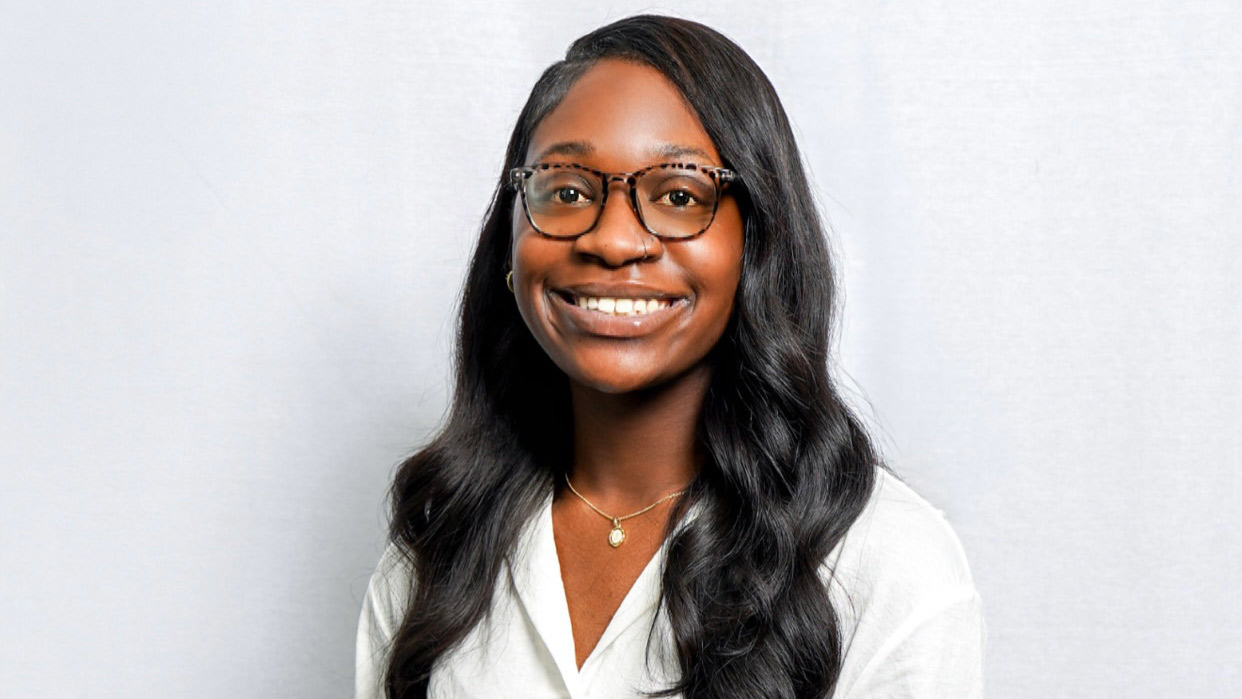
“I took advantage of talking to professors and going to Counseling Services,” Zhya Williams shares. “Working in different departments on campus was a resource, because when you want info about something, a lot of times the people you work with know those things. When I became an orientation leader, I learned even more resources. I’d hype up the kids in my groups to take advantage and get tutored.”
“I knew I wanted to go to college to become a physical therapist and was excited to go, but I didn’t know how to apply,” Sam Bruno stated on the panel. “I feel grateful for JWU because they make everything so easy. We have jwuLink with everything in one spot, so nothing was hidden, which played a role in coming here; other schools had many unknowns. I had a lot of anxiety about applying because I had no idea what I was doing, but JWU made it easy for me.”
2. Find Your Squad
“Starting college as a first-gen student meant stepping into a whole new world without a map,” expresses Jayla Pugh. “Initially, I was scared to reach out or put myself out there. But I started with two strangers I met at freshman orientation, Morgan Streater ’25 and Alijah Jamison ’24, who quickly became my comfort away from home and helped me navigate campus and the city. Through their friendship, I gained the confidence to expand my circle and get involved. By sophomore year, I became an RA and by junior year, a student assistant in the Athletic Department. Finding your crew can make all the difference; having people who get you helps turn uncertainty into opportunity.”
“I met my roommate on jwuLink and got lucky having her as a friend from the start,” said Sam Bruno. “I explored different clubs my first year, so I met a lot of good people and joined the dance team. I also went to a tutor my first year which helped a lot, and I got a good friend out of my tutor, who invited me to be a peer tutor. I made a lot of great connections and friends through that as well.”
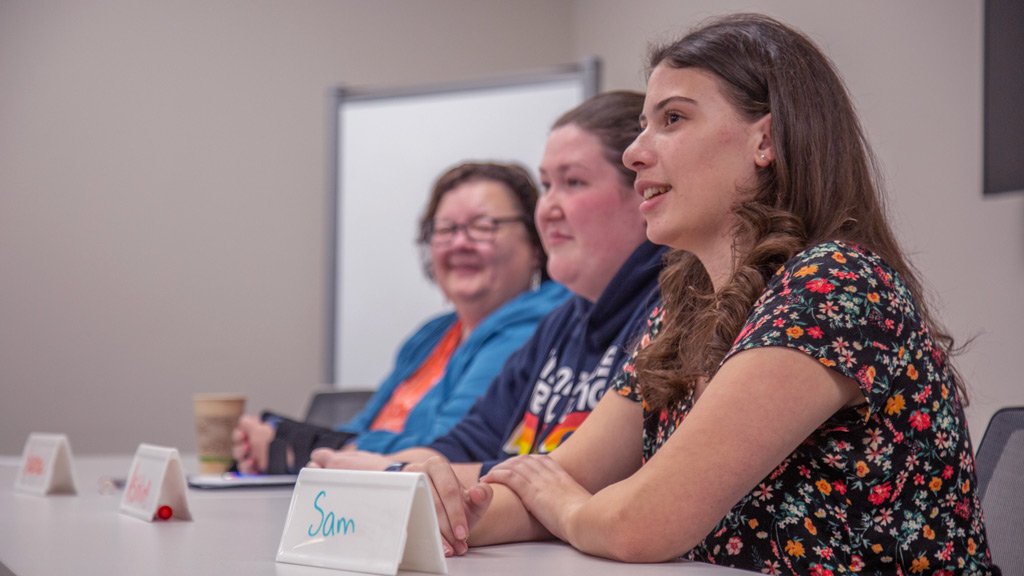
“I made my first friend at JWU during Welcome Weekend before school started; we connected by laughing at something and bonded ever since,” shares Zhya Williams. “Then I became an orientation leader, did work-study for Residential Life, was a campus tour guide for three years, was a student assistant in Admissions, was Fashion Society treasurer and was Commuters Connect treasurer. I remember joking to David Bateman-Schieler in Student Engagement that I got more involved when I moved off campus! It made me realize that I wanted to be at JWU more.”
Aisling O’Riordan embraced opportunities to connect with others. “My roommate was in JWU Players and got me into theatre; I was in chorus in high school but hadn’t thought about applying in college. I joined and now I’m on their executive board as their fundraising coordinator. Everyone there is super friendly and welcoming, and it’s like a second home.”
She also grew her professional network: “I applied to work in Experiential Education & Career Services and worked my way to become a peer career advisor, and they have been so supportive.”
At her own undergraduate institution, Suzanne Buglioni had a similar experience in finding support. “I got involved in musical theatre and found my tribe there, and I also found a lot of support in tutoring. I think it should be universal to get extra support as a first-gen because you don’t know what you don’t know.”
3. Focus on Progress, Not Setbacks
“My advice to other first-gen students is that you belong here, even when it doesn’t feel like it,” shared Jayla Pugh. “Even when you’re sitting in a room where no one looks like you or shares your story, you are not here by accident. Also, take care of yourself. Rest, community and mental health are not luxuries — they’re necessary. You're not just surviving college — you’re building something that hasn’t existed in your family yet. That takes courage. Give yourself credit and grace.”
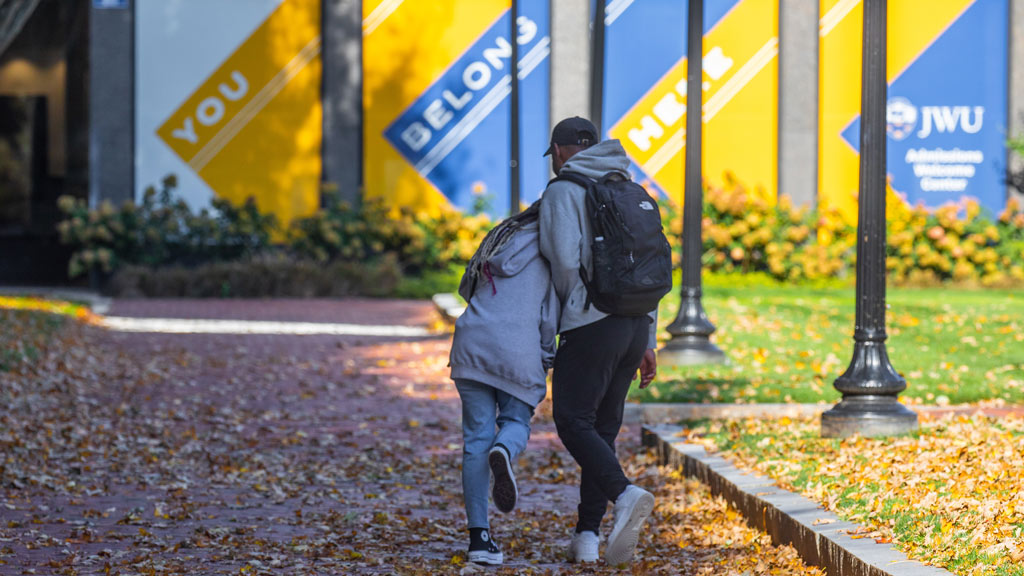
It took Buglione 11 years to earn her undergraduate degree after facing obstacles ranging from her mother’s passing to the closure of the original college she had attended — but eventually she got where she was meant to be. “I think there’s an inner voice for first-gens saying you don’t have what it takes," she stated. "I tell students to talk back to that voice. Imposter syndrome can pop up, and my Education Leadership students are tasked with understanding first-gen students. There are many ways to be smart, and we need to engage all those different ways.”
Zhya Williams shares a quote: ‘Imposter syndrome is just God telling you where you’re supposed to be.’ “I think that’s something you have to hear sometimes, especially being first-gen,” she says. “You’ll ask if you’re really supposed to be here, especially when it gets hard, and if you’re far from home like me it does get hard. I struggled with things from getting COVID to having my favorite aunt go into hospice. I had to remind myself why I’m here. You’re allowed to fall down sometimes, because life still happens while you’re in college. You may have to take a step back, but you’re still the person who worked hard to be where you are and to get that degree. Take it one day at a time and it won’t fail you.”
4. Reflect on Your Experience
JWU Providence Academic Success Center Assistant Director Jessica Washak didn’t realize that she was defined as first-gen until she had already completed her undergrad and master's coursework. She focused her Ed.D. degree research on first-generation students, and she remains a passionate scholar on the subject. She advises fellow first-gens to embrace metacognition, or the process of reflecting on and monitoring your own thinking.
“This self-awareness makes it easier to recognize what habits — like the amount of time you study for, how you choose to study, your notetaking process, etc. — are helping you to meet your goals,” she explains. “If they aren’t, you’ll know to adjust your approach after receiving an outcome you weren’t aiming for (for example, a lower-than-expected grade or a missed deadline). We all face setbacks at one time or another. Metacognition helps us to strategically use those setbacks to create future successes.”
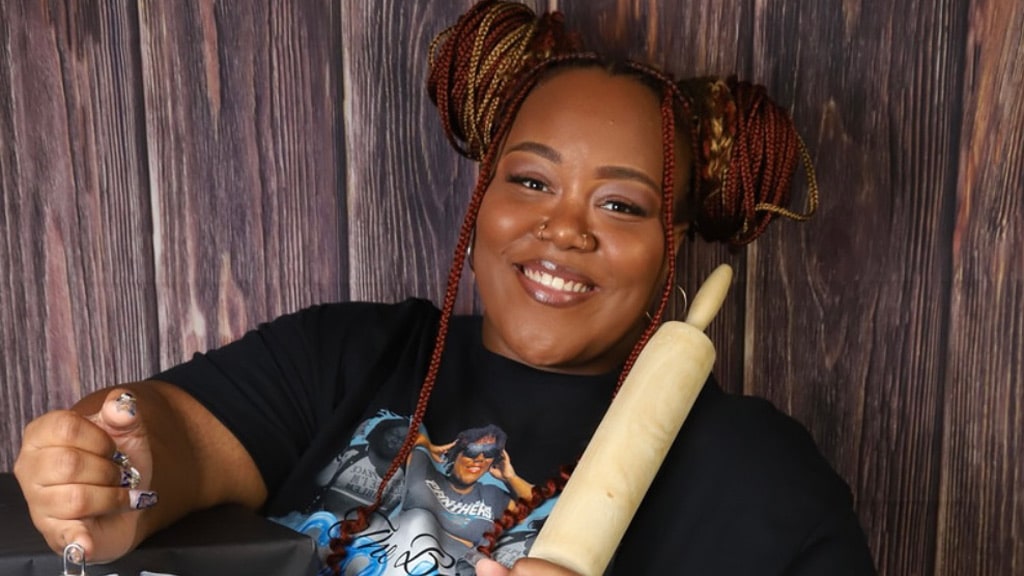
“I take my emotions and I write them into poetry,” expresses Zhya Williams. “Sometimes I’ll share them and sometimes I don’t. When I’m feeling awry, I’ll go back and read a poem and think, ‘This is where you used to be. Be proud of where you are now.’”
“A lot of times we plan ahead or worry about having to do this at this point, but we need to just live in the moment,” Williams adds. “College is an experience you don’t ever get to experience again — a once-in-a-lifetime opportunity to find out who you are vs. who you thought you were. We are where we’re meant to be in this classroom, in this lab, behind this desk, in the library — wherever we are.”
5. Share What You’re Doing with Friends and Family
“Your studies are a significant part of your life now,” Washak notes. “Even if they don’t have a four-year college experience that makes it easy for them to personally relate, your support network cares about you and will be happy to hear about how you’re pursuing your interests and learning new things.”
“My first year, just to feel supported because I was so far from home, I’d share little victories or new recipes or photos of labs in the group chat,” reveals Zhya Williams. “I learned to be more vocal about things I was doing or excitement I had. I was proud of myself and would say, ‘I hope y’all are proud of me, look at this.’ It’s led to my mom expecting a few plates of food! Once you do something the first time, it awakens something inside you: that it wasn’t as scary as you thought.”
JWU Resources for First-Generation Students
At the Academic Success Center, located on JWU’s campuses in Providence and in Charlotte, all students can find educational resources such as tutoring, success coaching and special accommodations. RJ Kilgore, director of Academic Success and Accessibility Services at JWU Charlotte, recommends that first-generation students seek success coaching. “In my opinion, this is the most beneficial resource,” he states. “I like to refer to success coaching as individual guidance on the skills most faculty and staff expect students to know when they come to college, but some students may not have been taught them. Our success coaches are trained to teach them.”
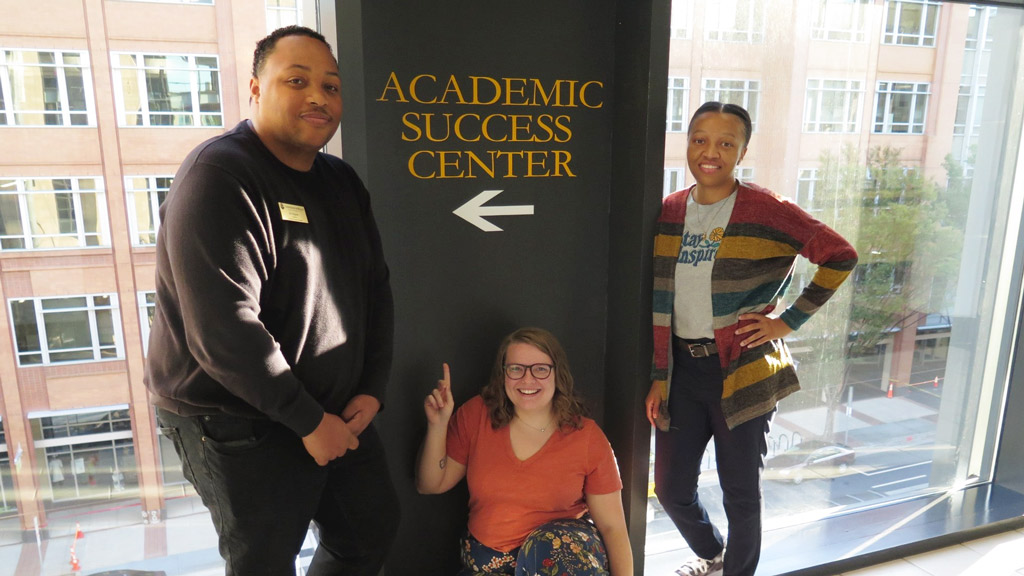
JWU Charlotte also offers a 2.5-week Summer Bridge program, sponsored by Bank of America, to help first-generation and underserved students get a sneak peek at college life with a little extra support through workshops and inclusive programming. Summer Bridge students form a small group that continues meeting after JWU classes formally start, creating a lasting and supportive connection.
“The Academic Success Center not only offers on-campus and virtual tutoring opportunities for many courses, but also writing support, workshops and academic success coaching,” states Jessica Washak of JWU’s Providence Campus. “Success coaches will work with you to clarify your goals and build a plan to accomplish them, helping to build your time and task management and your organizational and study skills in the process. They’re here to assist you in getting connected and navigating new experiences.”
Washak adds, “Similarly, your JWU mentors, financial and academic advisors and professors all want to see you succeed. When you have questions or need something, please ask!”
